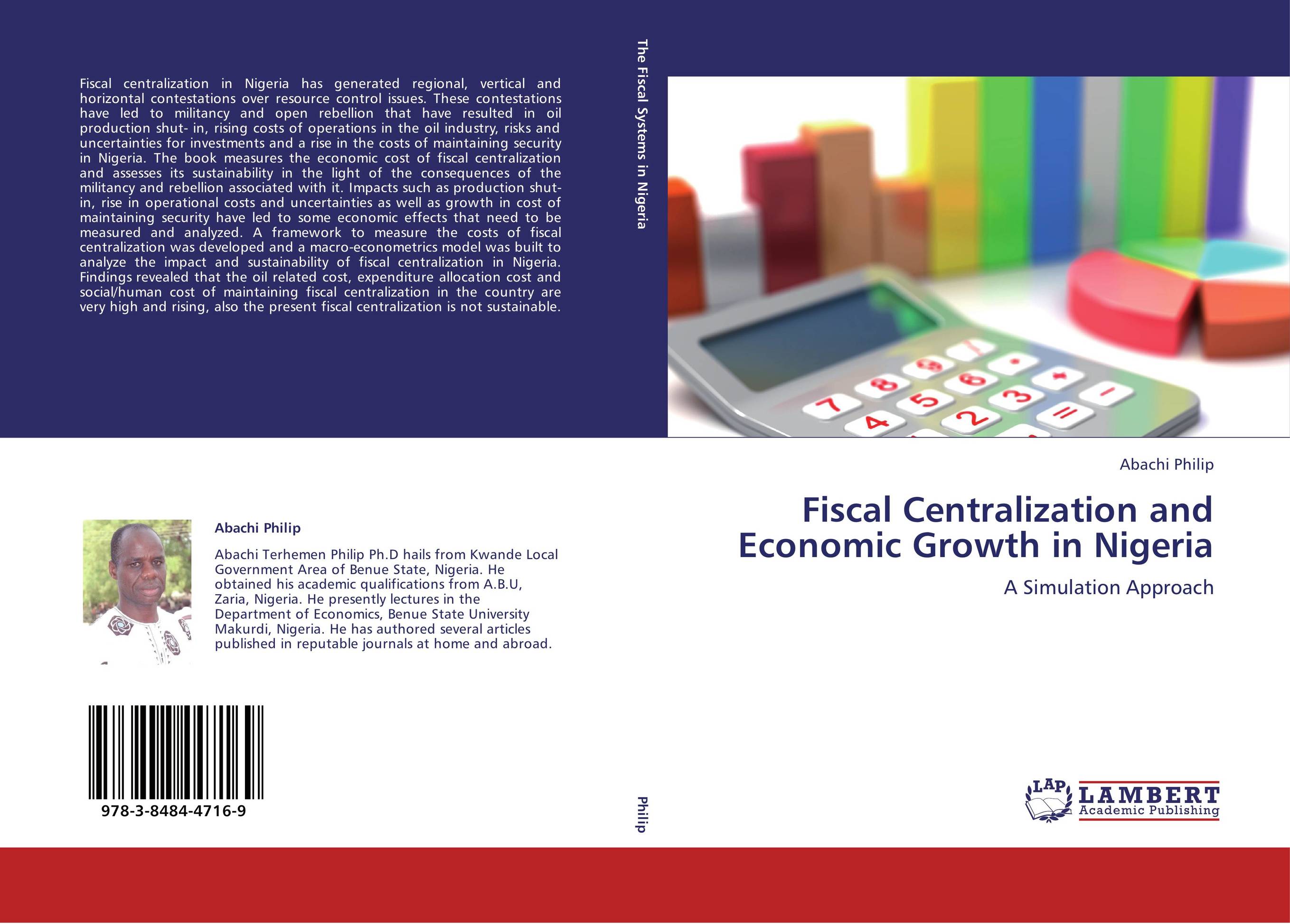| Поиск по каталогу |
|
(строгое соответствие)
|
- Профессиональная
- Научно-популярная
- Художественная
- Публицистика
- Детская
- Искусство
- Хобби, семья, дом
- Спорт
- Путеводители
- Блокноты, тетради, открытки
Fiscal Centralization and Economic Growth in Nigeria. A Simulation Approach

В наличии
| Местонахождение: Алматы | Состояние экземпляра: новый |

Бумажная
версия
версия
Автор: Abachi Philip
ISBN: 9783848447169
Год издания: 2012
Формат книги: 60×90/16 (145×215 мм)
Количество страниц: 184
Издательство: LAP LAMBERT Academic Publishing
Цена: 44234 тг
Положить в корзину
| Способы доставки в город Алматы * комплектация (срок до отгрузки) не более 2 рабочих дней |
| Самовывоз из города Алматы (пункты самовывоза партнёра CDEK) |
| Курьерская доставка CDEK из города Москва |
| Доставка Почтой России из города Москва |
Аннотация: Fiscal centralization in Nigeria has generated regional, vertical and horizontal contestations over resource control issues. These contestations have led to militancy and open rebellion that have resulted in oil production shut- in, rising costs of operations in the oil industry, risks and uncertainties for investments and a rise in the costs of maintaining security in Nigeria. The book measures the economic cost of fiscal centralization and assesses its sustainability in the light of the consequences of the militancy and rebellion associated with it. Impacts such as production shut-in, rise in operational costs and uncertainties as well as growth in cost of maintaining security have led to some economic effects that need to be measured and analyzed. A framework to measure the costs of fiscal centralization was developed and a macro-econometrics model was built to analyze the impact and sustainability of fiscal centralization in Nigeria. Findings revealed that the oil related cost, expenditure allocation cost and social/human cost of maintaining fiscal centralization in the country are very high and rising, also the present fiscal centralization is not sustainable.
Ключевые слова: Simulation, growth, Fragmentation, fiscal decentralization, Fiscal Centralization



